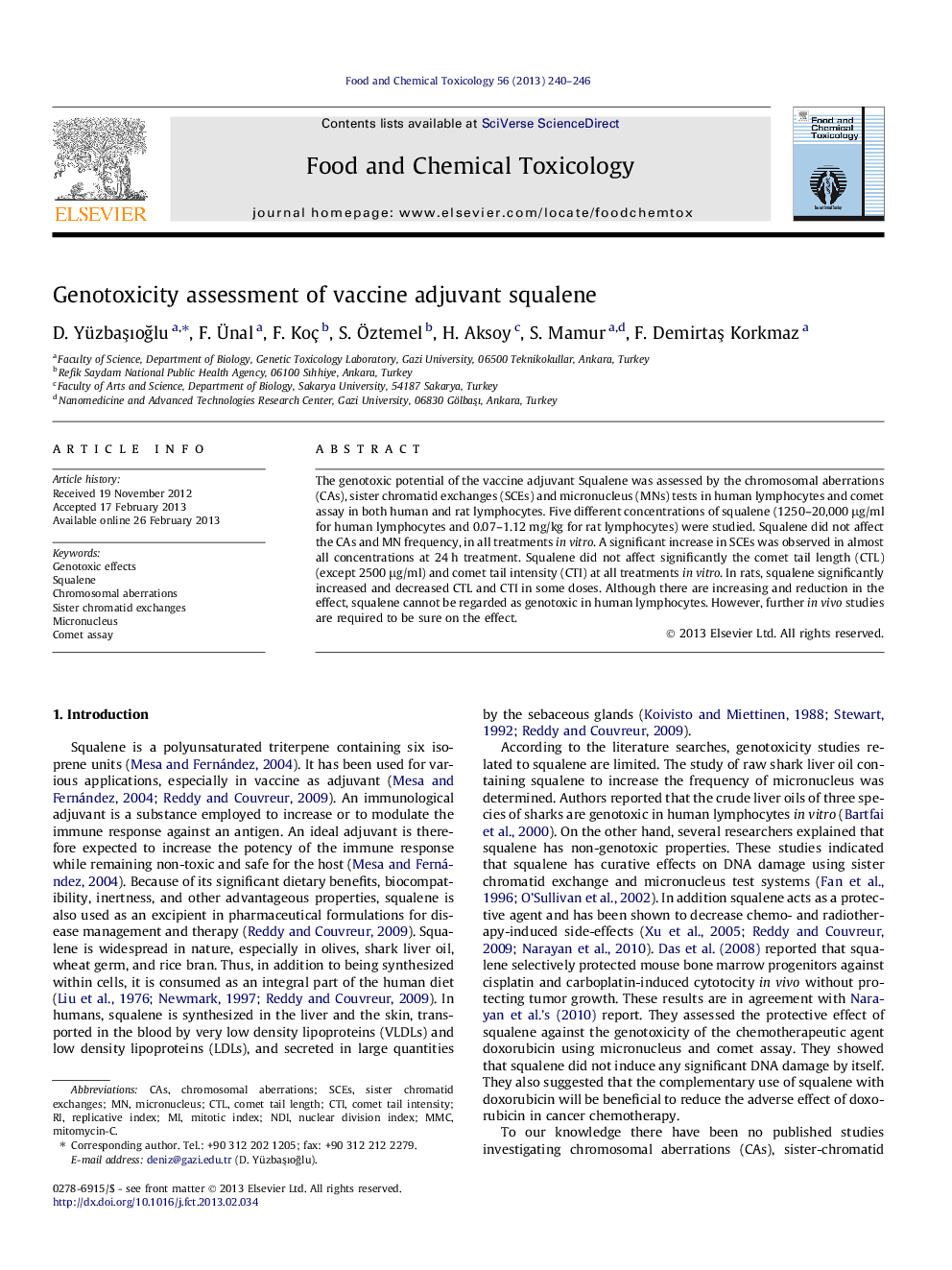| Article ID | Journal | Published Year | Pages | File Type |
|---|---|---|---|---|
| 5851219 | Food and Chemical Toxicology | 2013 | 7 Pages |
The genotoxic potential of the vaccine adjuvant Squalene was assessed by the chromosomal aberrations (CAs), sister chromatid exchanges (SCEs) and micronucleus (MNs) tests in human lymphocytes and comet assay in both human and rat lymphocytes. Five different concentrations of squalene (1250-20,000 μg/ml for human lymphocytes and 0.07-1.12 mg/kg for rat lymphocytes) were studied. Squalene did not affect the CAs and MN frequency, in all treatments in vitro. A significant increase in SCEs was observed in almost all concentrations at 24 h treatment. Squalene did not affect significantly the comet tail length (CTL) (except 2500 μg/ml) and comet tail intensity (CTI) at all treatments in vitro. In rats, squalene significantly increased and decreased CTL and CTI in some doses. Although there are increasing and reduction in the effect, squalene cannot be regarded as genotoxic in human lymphocytes. However, further in vivo studies are required to be sure on the effect.
⺠Squalene has been used for various applications, especially in vaccine as adjuvant. ⺠This study demonstrated that squalene has no genotoxic potential in vitro. ⺠Squalene did not affect the CTL and CTI in vitro contrary to in vivo. ⺠Further in vivo studies are required to be sure on the effect.
